Islam and Secularism; Conflict or Conciliation?
Earnest Gellner once suggested that, in contrast to Christianity, Islam is a “markedly secularization-resistant religion.”[1] What he intended to suggest was that although Muslims accommodated several secular values within them, they remained generally averse to the very ideology of secularism. Of course, this observation of Gellner is so far from the reality about multifaceted Muslim engagement with secularism. To be sure, the engagement of Muslim intellectuals with this ideology caused serious discussions and debates within the Muslim World. But, contrary to the essentializing argument of Gellner, that Muslims were utterly averse to the secularization project, Muslim response toward this project has many folds. A number of these intellectual positions were clearly outlined by eminent scholars of global Islam such as John Esposito, Vali Nasr and Jeffrey Kenney, to name a few. To be more precise, Muslim engagement with secularism can be divided as those who take a revolutionary approach to remove all the traces of secularization project, those who accommodate this project within the historical Islam, and those who took fundamentalist approach pointing that the mixing of religion and politics is necessarily irrational.[2] This article is intended to analyze the Muslim responses to the idea of Secularism, along with detailly examining three influential scholars who critically engaged with the issue and set new current of debates.
As suggested above, Gellner characterizes Muslims who view Islam as “the blueprint of a social order” which “holds that a set of rules exists eternal, divinely ordained, and independent of the will of men, which defines the proper ordering of society… These rules are to be implemented throughout social life.” May be Gellner's conception regarding the approach of Muslims towards secularism arose from a selective understanding of the rejectionist approach of Muslims, viewing the idea of separation of Islam from politics, economy, laws, education and social life as contrary to the scriptural basis of Islam. The main advocates of this rejectionist approach were Sayyid Qutb(1906-66), Abul A’la Maududi(1903-79), Ismail Al-Faruqi(1921-86), and Syed Muhammed Naqib Al-Attas.[3]
Sayyid Qutb, and Abul A’la Maududi, two revivalist Islamic scholars, as part of their project to establish Islamic states, firmly warned against secularism and admonished it for being ideologically based on removing religion from society.[4] Different from them, Ismael Al-Farooqi argued that the wholesale rejection of secularism is not possible, and thus called for a judicious adoption of some aspects of secular knowledge to bring about an Islamized version of modernity.[5] Later, I will detailly discuss the intellectual contributions of eminent scholar Syed Muhammed Naqib Al-Attas within this tradition.
Beyond the rejectionist approach, some took an accommodationist posture to the question of Islam and Secularism. For them, secularism is compatible with Islam, and it was historically present within Islamic states. Asghar Ali Engineer (1939-2013), one of the major proponents of this approach, influenced by Karl Marx and Western Liberalism, argued that Islam should be understood as a liberating religion of marginalized people from oppressive acts of dominant class of society. As a leader of Dawoodi Bohra Movement, which challenged the dominant theological stands regulated by Ulamas, he developed a liberation theology based on pluralistic views of religion. He believes that although all religions vary in their beliefs, they can be united in their primary intention of social and economic justice.
In his liberal interpretation of the Quran, Engineer argues that there is no instruction given on a fixed form of Islamic polity, rather “Muslims are only pushed to create a just society by using rational thought in a process of consultation with others, a Quranic Concept called Shura.[6]” For Engineer, as Qur'an instructed to adopt the most just means to regulate Islamic polity, establishing a democratic state will be the most practical way. For this purpose, he supports secularism and believes it will ensure the stability of democracy, which is inevitable for maintaining equity and justice in society. He explicitly stated that to make possible a pluralistic society, Islamic polity should be actively respectful to other religious beliefs, not passive and this common platform beyond the dominance of any religious beliefs and against communal tensions and sectarianism, will be possible only through a secular state.[7] This same notion was also expressed by famous Sudani born Islamic scholar Abdullah Ahmed Al-Naim. For him, being a true believer is impossible without being part of a secular state, which is the only one model promoted by Islam.[8]
In contrast to former approaches, Fundamentalists[9] within the tradition of Muslim response to secularism holds the view that Secularism ought to be the organizing standard for almost all aspects of life in Muslim societies. Islam, therefore must be restricted to a private space and the Sharia, which their opponents regard as an all-encompassing legal code, should be domesticated and circumscribed.[10] One of the manifestations of this thought was explicit in the Turkish regime established by Kemal Ataturk.[11] He called for the separation of religion and the state, and preached the state should act neutrally. Esposito writes about Ataturk’s state as a “regime of secular fundamentalism” where “the mixing of religion and politics is regarded as necessarily abnormal (departing from the norm), irrational, dangerous and extremist.”[12] Although Kemal Ataturk proclaimed his state is neutral, certain behaviors and signs, like banning of wearing scarfs in public and restricting freedom of expression of religion denotes the opposite. In the next part, I will detailly enquire the intellectual contributions and new currents of debates on secularism set by three influential scholars. Among them, Syed Muhammed Naqib Al-Attas was an influential figure, who propagated the argument of universal inapplicability of Secularism, and influenced the Muslim world, unlike anyone else. Considering this criticism of universal inapplicability in Eastern World, it was the Canadian philosopher Charles Taylor who proposed new definitions for secularism. Talal Asad, with whom I will engage later, by his irrefutable arguments, critically analyzed the inherent violence in Secularism and its by-product nation state.
Endnotes:
[1] Gellner, Ernest; Postmodernism, Reason and Religion (New York: Routledge, 19920, 5-7.
[2] Gellner, Ernest; Muslim Society, Cambridge; Cambridge University Press, 1983, P.1
[3] Nasr, Vali; Lessons from the Muslim World, Daedalus 132, 3 (2003): 70; and Jeffrey T. Kenney, Secularization and the Search for an Authentic Muslim Modern, in Islam in the Modern World, ed. Kenney and Ebrahim Moosa (London: Routledge, 2014), P. 269.
[4] Sayyid Qutb expresses his stance against secularism by warning Muslim society about Democracy, a necessary output of Secularism; Democracy in the West has become infertile to such an extent that it is borrowing from the systems of the Eastern bloc, especially in the economic system, under the name of socialism. It is the same with the Eastern bloc. Its social theories, foremost among which is Marxism, in the beginning attracted not only a large number of people from the East but also from the West, as it was a way of life based on a creed. But now Marxism is defeated on the plane of thought, and if it is stated that not a single nation in the world is truly Marxist, it will not be an exaggeration. On the whole this theory conflicts with man's nature and its needs. This ideology prospers only in a degenerate society or in a society which has become cowed as a result of some form of prolonged dictatorship. But now, even under these circumstances, its materialistic economic system is failing, although this was the only foundation on which its structure was based. (Qutb, Sayyid; Milestones, Islamic Book Service (2006), P.1
[5] Aljuneid, Khairudheen; Deformations of the secular; P.644
[6] Engineer, Asghar Ali; Islam and Liberation Theology: Essays on Liberative Elements in Islam, New Delhi: Sterling, 1990. P.64-65
[7] Engineer, Asghar Ali; Islam: Challenges in the 21sth century. Gayan House (2004). P.154-15.
[8] Al-Naim, Abdullah Ahmed; Islam and the Secular State, Harvard University Press (2010) and An-Naim, Abdullah; Progressive Islam, a lecture by Dr. An-Naim, Ohio University, May 2008. https://www.youtube.com/watch?v=exrloGCVxMI (Accessed Date; December 2021)
[9] In contrast to conventional usage, as strict adherence to religious scriptures, I use the term here as strict adherence to the principles of Secularism.
[10] De Poli, Barbara; Muslim Thinkers and the Debate on Secularism and Laı¨cite´, in Muslim Societies and the Challenge of Secularization: An Interdisciplinary Approach, ed. Gabriele Marranci (New York: Springer, 2010), p.37-38
[11] Kemal Ataturk was a Turkish field marshal, revolutionary statesman, author, and the founding father of the Republic of Turkey, serving as its first president from 1923 until his death in 1938. He undertook sweeping progressive reforms, which modernized Turkey into a secular, industrializing nation. Ideologically a secularist and nationalist, his policies and socio-political theories became known as Kemalism. Due to his military and political accomplishments, Atatürk is regarded as one of the most important political leaders of the 20th century.
[12] Esposito, John L; Islam and Secularims: Exploring the Place of Religion in society,” Arches Quarterly 2, No. 3 (2008): P.4-9
About author:
Muhyudheen Shakir P is a graduate of Islamic Studies from Darul Huda Islamic University. Currently, he works as Sub Editor in Book Plus Publishers
Disclaimer
The views expressed in this article are the author’s own and do not necessarily mirror Islamonweb’s editorial stance.

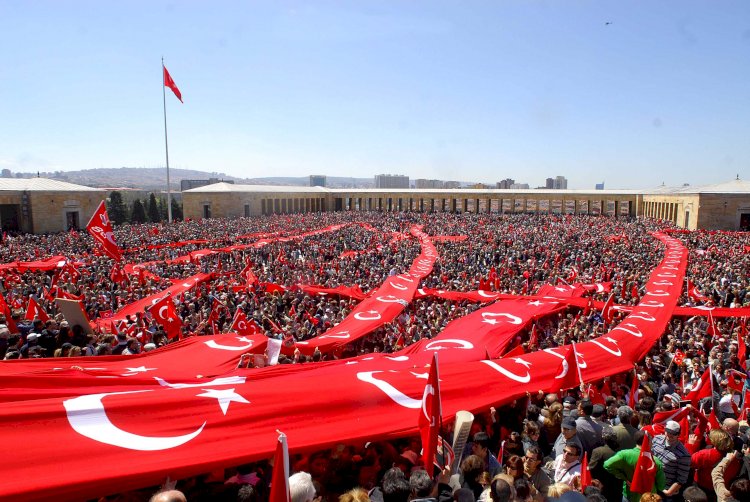



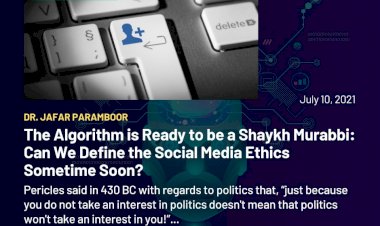
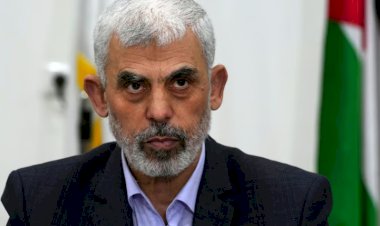
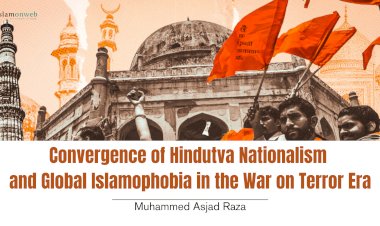
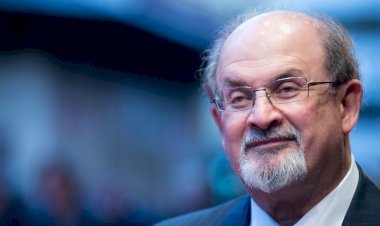
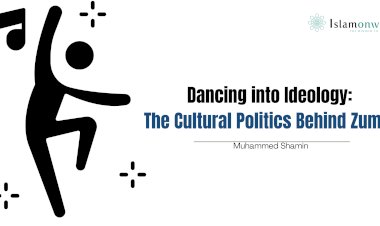














Leave A Comment